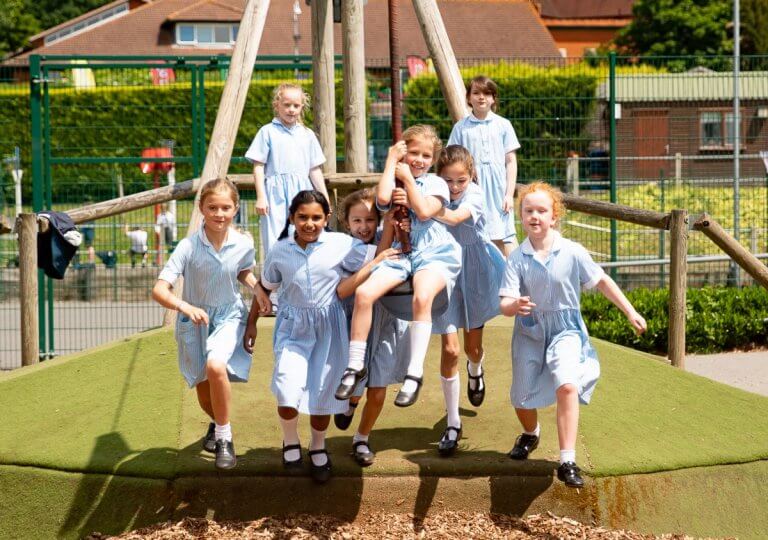
The concept of a holistic education traces back to the 18th century, when philosophers such as Jean-Jacques Rousseau, Ralph Waldo Emerson and Henry Thoreau espoused the values of developing a person to become the very best they can be.
But it wasn’t until the mid-1980s in North America that the idea became fully recognised. Rebelling against the dominant ‘mechanistic’ worldview of mainstream education, the concept was then to serve as advocate for schools to cultivate the moral, emotional, physical, psychological and spiritual dimensions of the developing child.

Source: Danes Hill School
Mexican sociologist and author on education, Ramón Gallegos Nava, describes it as “educating individuals to live responsibly in an emergent, sustainable culture,” and the avoidance of “erroneous educational decisions that could negatively affect the lives of our children and young people.”
As we stand on the brink of a technological revolution, continuing with an industrial-era, cookie-cutter education is to do a disservice to our children and students. But this one-size-fits-all approach continues to dominate classrooms worldwide.
Because it’s 2018, we need to do more to provide the next generation with a personalised educational experience complete with the skills, values and characteristics needed to thrive in our knowledge economy.
Here are the different elements that make up holistic education, a factor that schools around the world should research and embrace:
1. A conducive learning space
“To assist a child, we must provide him with an environment which will enable him to develop freely,” said Dr. Maria Montessori, famed educator and founder of the Montessori method of education.
For an idea of what this stimulating environment looks like, take a look at Danes Hill School campus – a top co-educational UK day and preparatory school set in 55 acres of landscaped grounds in the village of Oxshott, Surrey.
The Paddock is where stimulated thinking, inspiration and appreciation for nature takes place. In the school’s outdoor classroom, Forest School sessions are conducted for the Pre-Prep. The aim of this is to allow pupils to make the most out of the resources and materials available to develop an appreciation of the great outdoors.
2. An effective curriculum
At Danes Hill, learning is fun. As pupils in Pre-Prep – the first three years of school for those aged three to six years old – develop their language and numeracy skills, specialist staff ensure they enjoy the experience – this is the best way to absorb the school’s broad and balanced curriculum. This approach applies to other subjects studied, including the sciences, foreign languages, information and communication technology.
To personalise the curriculum to the individual’s strengths and weaknesses, class teachers collaborate with classroom and reading assistants to ensure each child’s development is monitored and promoted.
It’s an approach that bears fruit in an academic sense. In 2018, all Common Entrance pupils successfully gained entry to their chosen senior school. From the 28 different senior schools Danes Hill fed, 84 percent achieved A*, A and B grades.
3. Activities that educate the whole child
Danes Hill’s ethos is to ‘educate the whole child’ and as such, the school hosts many extra-curricular activities that help achieve this. Some examples include Middle School Mathematicians, Model Making, Mindfulness colouring, STEM Young Engineers, Stop Motion Animation, etc.
Sports and music have a significant impact in how a child grows in the cognitive, affective and physical learning domains. Activities like these build children’s social, emotional and physical skill, as well as initiative and creativity. They teach persistence, problem-solving, communication and collaboration.

Source: Danes Hill School
The plethora of benefits explains Danes Hill’s investment in excellent on-site sporting facilities, and a dedicated team of specialist games teachers to provide expert coaching in a variety of team and individual sports. On top of this, over 360 children learn a musical instrument and take part in the orchestra, string orchestra, jazz band, smaller ensembles or its three choirs.
4. Pastoral care emphasised
Compassion and care matter. Identifying pupils based on their grades can be damaging to their self-worth. It advertently punishes them for being different, giving the ‘wrong’ answer or taking risks.
This is why every child at Danes Hill Upper School gets a tutor and form teacher with whom he or she meets daily. Not only do they monitor pupils’ progress closely throughout the year, but they’re always on hand to provide encouragement and support as required.
Teachers and administrators make it a point to maintain good communication with parents since the provision of a holistic education is a team effort, with home and school journeying together for the benefit of the child.
Click here to find out more about Danes Hill School
Liked this? Then you’ll love…
International Schools: What is a British-based curriculum?
Nexus International: An Apple Distinguished School with a drive for innovation







